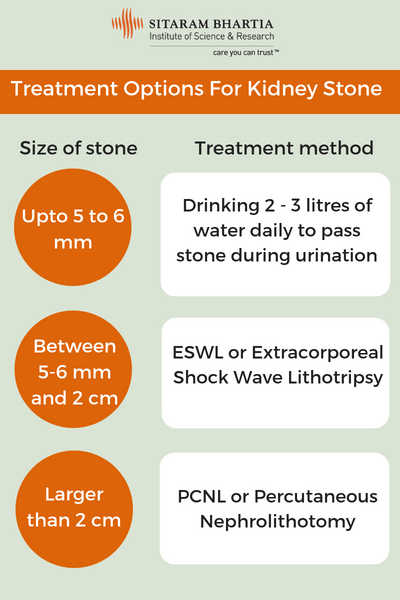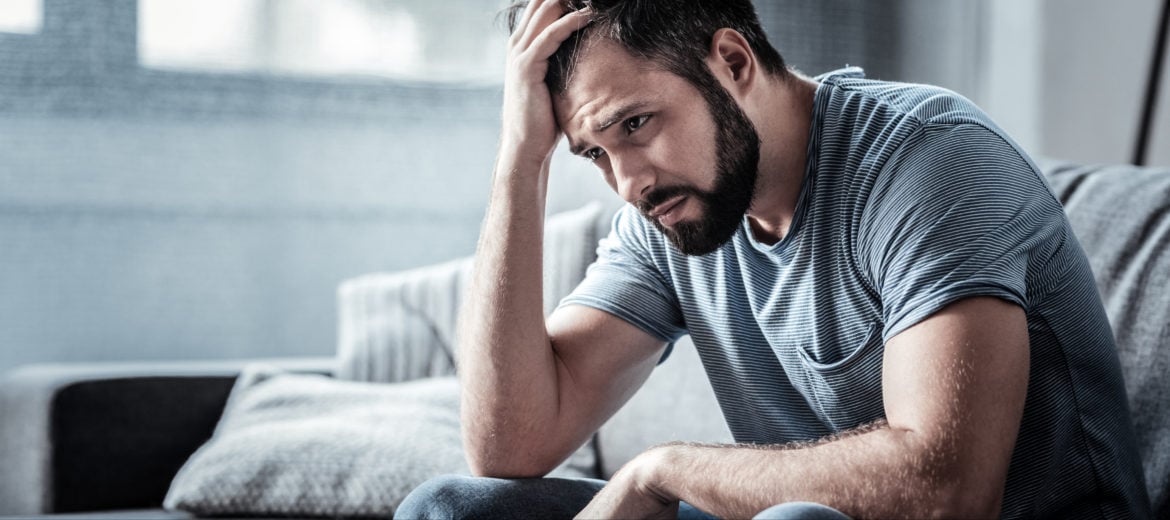Kidney stones are hardened deposits that occur in the kidneys but may develop anywhere along the urinary tract.
“You may not know you have kidney stones until they cause pain,” says Dr. S.V. Kotwal, Senior Urologist at Sitaram Bhartia Institute of Science and Research, “which happens because the stones may have gotten into the ureter or elsewhere in the urinary tract.”
Symptoms of Kidney Stones
The most common symptom of kidney stones is intermittent and intense pain the back or side of the abdomen. You may have a persistent urge to pass urine but may experience discomfort while passing it.
Other kidney stone symptoms that people might experience are:
- Blood in urine
- Vomiting and nausea
Kidney stones affect men more than women and can be seen in people aged 20-50 years.
Diagnosis of kidney stone
Your doctor will suggest a blood test and urine tests to determine the presence of stones.
A high level of uric acid (a type of waste product in urine) indicates the possibility of stones.
The 24-hour urine collection tests are done to assess whether you are passing stone-forming minerals that enable their formation.
Depending on the test results, you may be advised a non-contrast CT scan.
Possible Causes
“One of the major causes behind the formation of kidney stones is the lack of fluid intake,” explains Dr. Kotwal.
“When the fluid intake is not enough, the urine becomes very concentrated. This can result in crystals of uric acid and calcium oxalate being formed which can stick together to form stones.”
Risk Factors for Kidney Stones
You may be at risk of developing kidney stones with:
- Family history of kidney stones
- Obesity
- High blood pressure
- Diet rich in sodium and protein but low in calcium
- Sedentary lifestyle
Treatment for kidney stone
Kidney stone treatment depends on the size of the stone.
If the stones are small, around 5-6 mm, you will be advised to drink at least 2 to 3 litres of water everyday so that you can pass the stone while urinating.
You will be given some medicines to relieve the pain while passing the stone and decrease the uric acid levels in the blood. You may also be suggested dietary changes.

Home remedies for Kidney Stone
“You should check with your urologist before attempting any ‘home remedies’ advertised on the internet, as these may not be scientifically proven to be effective, ” advises Dr. Kotwal.
Some safe home remedies you can follow are:
Drink lots of water: The easiest thing you could do (to stop kidney stones from recurring) is to drink plenty of water on a daily basis to make sure your urine is clean. Dark yellow or brown coloured urine is an indication that you aren’t drinking enough water.
Consume lemon juice: Lemon juice is rich in citric acid which helps dissolve kidney stones and also eases the discomfort while passing the stones.
Drink pomegranate juice: Pomegranate has a lot of health benefits. It not only lowers the acid levels in your urine but also reduces the risk of having kidney stones in future. It is a natural detoxifying agent that helps flush out impurities causing kidney stones. You can have its juice as many times in a day as you want.
Treatment for Large Kidney Stones
In case the stone is large in size, you will most likely be unable to pass it on your own and would require medical assistance.
One of the ways to treat large kidney stones is ESWL (Extracorporeal Shock Wave Lithotripsy). In this procedure, sound waves are used to create strong vibrations to break the stones into tiny pieces. This way they are able to pass through easily.
“Kidney stones upto 2 cm can be treated using ESWL,” says Dr. Kotwal.
For stones larger than 2 cm which are resistant to other forms of stone treatment, a technique called PCNL (Percutaneous Nephrolithotomy) is used.
“In this procedure, a small 1 cm incision is made in the patient’s back. A tube is placed there from which a small telescope is passed through. This helps in locating the stone, breaking it up and taking the pieces out of the body,” explains Dr. Kotwal.
Most kidney stones are small and can be easily passed through urine but if they remain inside the body for long, they can increase in size, resulting in an emergency situation.



